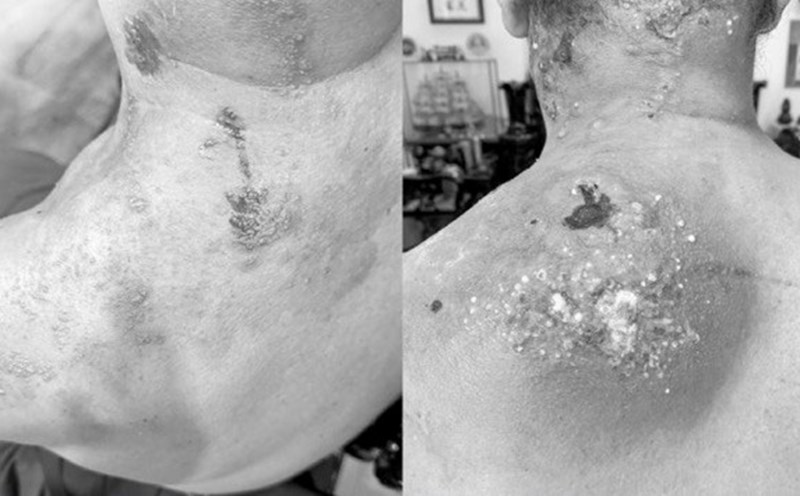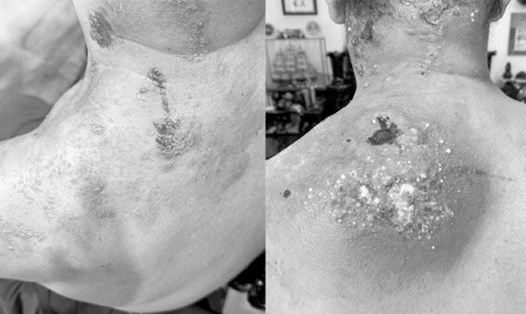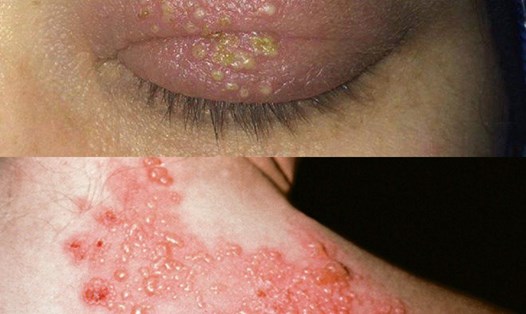Ms. N (55 years old) was admitted to the hospital with red, rough, blister-like lesions appearing on one side of her face. Two days before, the patient had felt a feeling of irritation, itching, stinging, and discomfort inside her right eye, for unknown reasons.
After that, her eyes became increasingly red, swollen, painful, blurred vision, and watery. Blisters appeared and spread around her eyes. Ms. N bought medicine and eye drops at home, but the pain in her eyes increased. The patient had suffered from chickenpox on top of diabetes for many years.
According to Dr. Nguyen Hoang Anh - Department of Internal Medicine, Tam Anh General Hospital, Ho Chi Minh City, herpes zoster attacks the eyes causing severe keratitis like Mrs. N's is a serious case. The longer it is left, the deeper the virus attacks the inner layers of the eye or spreads to other organs.
Co-morbidities on the basis of diabetes, the level of danger is even higher. High risk of loss of blood sugar control, severe bacterial infection, facial nerve paralysis, even myocardial infarction, stroke, severe stress, very dangerous.
Shingles and chickenpox are closely related, both caused by the Varicella Zoster virus. After chickenpox is treated, the virus still exists and lives latent (dormant) in the nerve ganglia for many months and years.
When encountering favorable conditions such as immune deficiency, stress, physical weakness..., the virus will become active again (wake up), leave its place of residence, move along the nerves to the skin and cause shingles.
People who have had chickenpox and have symptoms of suspected shingles such as rash, pain, fever, fatigue and insomnia should be examined and treated promptly at a general internal medicine, neurology or dermatology specialist. Avoid leaving the disease untreated for a long time as it can lead to many dangerous complications, even death.
According to Dr. Vo Thi Doan Phuong - Head of Clinical Department 1, Ho Chi Minh City Dermatology Hospital, shingles is usually benign. Skin lesions develop rapidly within 7-10 days, form scabs and disappear completely after 2-4 weeks, leaving no sequelae.
However, there are still some severe cases that can cause internal organ damage. If detected late, not treated promptly and properly, serious complications such as pneumonia, encephalitis - meningitis, hepatitis, deafness, blindness...











